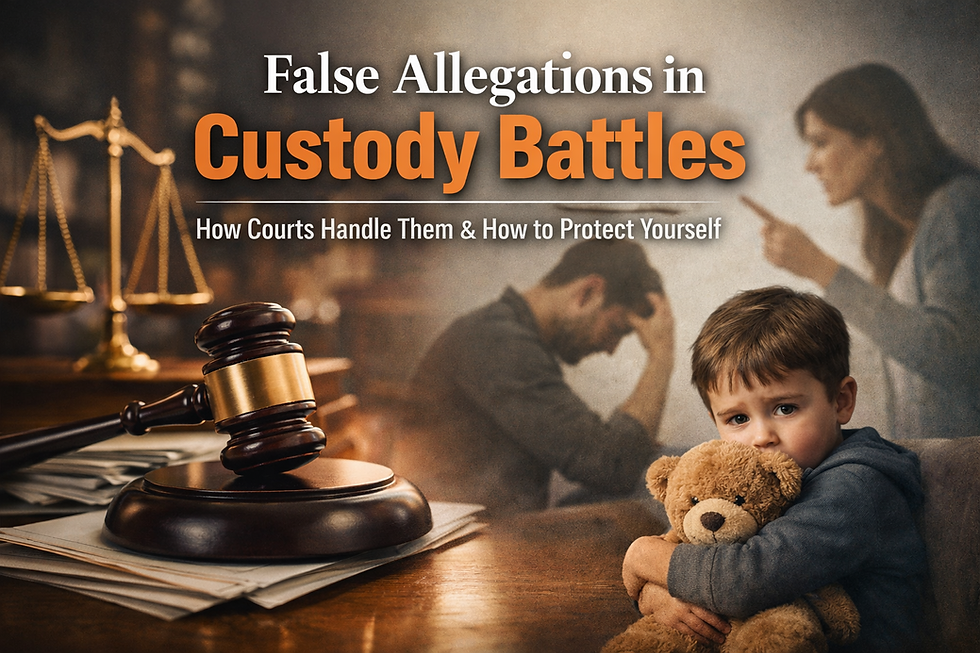Parental Alienation in Custody Determinations
- Paul Tortora Jr.
- Oct 14, 2025
- 2 min read
Updated: Jan 12

When parents separate or divorce, it’s not uncommon for emotions to run high. Unfortunately, sometimes those emotions spill over into the parent–child relationship, leading one parent to influence a child against the other. One parent may engage in behaviors that undermine the child's relationship with the other parent, often leading to the child reject or become hostile toward the other parent. This is known as parental alienation, and in New York custody cases, it can have serious consequences. As an experienced Syracuse child custody attorney serving clients across Central New York State, I've seen firsthand how parental alienation can profoundly impact children and families. In custody determinations, New York courts prioritize the child's best interests, and evidence of alienation can significantly influence outcomes. This blog post explores what parental alienation is, its signs, how it's handled in New York custody cases.
What Is Parental Alienation?
Parental alienation is not just a buzzword, it's a serious form of emotional manipulation where one parent (the alienating parent) systematically damages the bond between the child and the other parent. Parental alienation occurs when one parent manipulates or pressures a child to reject, fear, or show hostility toward the other parent, often without legitimate justification. This can take many forms, such as:
Making negative comments about the other parent in front of the child
Limiting or interfering with visitation or communication
Creating false narratives about neglect or abuse
Forcing the child to side with one parent over the other and/or rewarding them for doing so
Over time, these actions can damage the child’s relationship with the targeted parent and undermine the court’s goal of preserving meaningful contact with both parents.
How New York Courts View Parental Alienation
In New York, custody determinations are based on the best interests of the child. When a court finds evidence that one parent has intentionally tried to alienate the child from the other, it can weigh heavily against that parent. The courts have consistently held that a parent’s willingness to foster a positive relationship between the child and the other parent is a key factor in determining custody. Alienating behavior can lead to a loss or reduction of custody for the offending parent.
Signs the Court May Look For
Family courts often rely on a combination of witness testimony, school or counseling records, and sometimes forensic evaluations to determine whether parental alienation is occurring. Possible signs include:
A child showing sudden, unexplained hostility toward one parent
Repetition of adult language or accusations that seem coached
Refusal to participate in visitation without valid reason
One parent’s pattern of obstructing communication or parenting time
Contact A Syracuse Child Custody Attorney Today
If you believe you’re being alienated from your child, or are facing allegations of alienation, it’s important to seek legal guidance as soon as possible. Contact us today for a confidential consultation with an experienced Syracuse child custody attorney.
For more information on child custody proceedings, please visit please visit our Child Custody and Frequently Asked Questions pages
Disclaimer: This blog post is for informational purposes only and does not constitute legal advice. Laws and guidelines can change, so always verify with current statutes or a professional.


